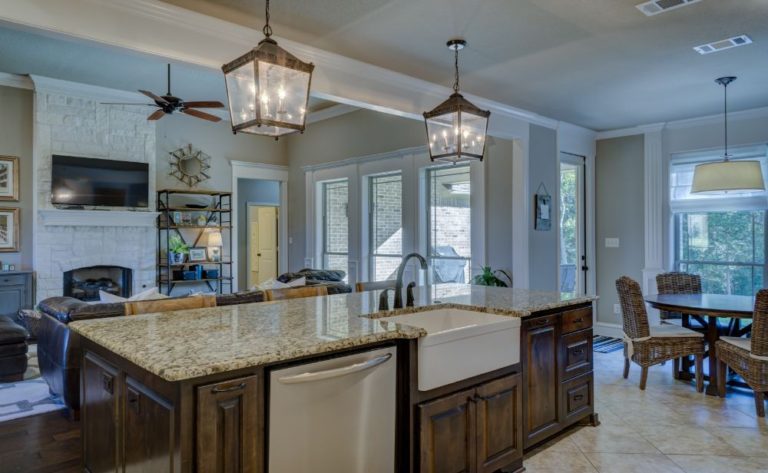How Long Does It Take to Close on a House in Northern Virginia?
Have you been successful in your search for the house of your dreams in Northern Virginia? Do you already have an offer that has been accepted? Have you made a decision about the furnishings that will go in your brand-new living room?
Hold up a second! It is not uncommon for buyers to have to wait until after the closing procedure has been completed before moving in.
How long does it take to finalize the purchase of a home in the city that served as the nation’s first capital?
Let’s have a peek.
What’s the deal with Northern Virginia?
Everyone is talking about Northern Virginia right now.
Housing costs have been continuously climbing due to the presence of government jobs and prospects in the technology sector in the metropolitan area surrounding Washington, DC. This year marks the beginning of Amazon’s expansion into the region, which will result in the creation of jobs suitable for people of all economic levels.
The public schools in Northern Virginia are consistently ranked among the best in the country. Numerous museums and art galleries can be found within its boundaries. Festival-goers interested in music, craft, and beer can participate in a wide variety of cultural activities throughout the year.
There is a wealth of history, as well as diversity and regional flavour, throughout Northern Virginia. It is a fantastic location for foodies thanks to the abundance of local brewers, farmer’s markets, and vineyards.
The suburbs are a safe haven for people who are torn between city and rural living because they provide the best of both worlds. The District of Columbia is not difficult to reach, and nearby hiking and walking paths, parks, and mountain vistas can all be reached in a short car ride.
How Much Time Does It Take to Complete the Closing Process on a House?
The market for real estate in Northern Virginia is very competitive right now. It’s possible that you had to place more than one bid on a property before you found the ideal house at the ideal price. However, it’s possible that you won’t be able to move in right away.
If you are not paying cash for the property, the closing process can take up to forty-five days to complete.
Your lender will play a significant role in determining the exact amount of time it will take to close the deal. The closing process can go much more quickly for buyers who have already been preapproved for a mortgage.
The closing process for many mortgage loans involving the federal government can take up to thirty days. The underwriting process for specialized loans that call for the buyer to receive assistance with the down payment typically consists of two steps and can take even more time.
Different states have different regulations for when a business must officially close its doors. However, in the majority of instances, you will be required to have a purchase agreement that is signed and includes any necessary addendums.
In most cases, you are required to get a home inspection. If the seller is required to complete something, such as a roof certification or pest inspection, then the results of those inspections must also be provided.
Before your lender will most likely agree to assist you in financing the acquisition, you will most likely be required to get home insurance as well as title insurance. Your lawyer or real estate agent might certainly provide you with some recommendations.
Before you can close up shop, you will need to do one last inspection of the space.
The day of the closure the actual closing it may be carried out by either a title firm or a real estate lawyer. There is a chance that your real estate agent will be present. Prepare to sign a significant amount of paperwork.
You will receive legal ownership of the property once the seller has signed and had notarized a deed in your favor. A deed of trust and an executed promissory note are two documents that need to be notarized and signed by both the buyer and the seller. Each and every one of the loan documentation will need to be signed.
On the day of the closing, your lender will need to put the monies into their account. You are going to be responsible for paying the remaining balance of your down payment in addition to the closing charges.
The Most Frequent Holdups
It’s possible that the closing process will take longer than anticipated. It is normal, and even to be expected, that there will be many holdups.
In the event that this occurs, it is in your best interest to seek the guidance of an expert real estate agent or lawyer regarding the expected length of the delay. Keep in mind that in the grand scheme of things, this amount of time is inconsequential if you end up finding your dream home.
During the time that the title is being processed, if there are any new liens filed against you or the seller, for instance, those liens will need to be resolved prior to the closing.
It’s possible that your closing will be delayed if there are errors discovered on your credit report or if there are financial documents that are missing.
Sometimes there are discrepancies between the price that was listed and the appraisal, and the price will need to be renegotiated through the mortgage lender. It is possible that there will be issues that need to be resolved, such as selling the home you are currently living in. Altering your marital status can also cause the closing process to take longer.
If you are purchasing a home that is involved in a short sale, the seller must pay off the lender who held the original mortgage and have the lender agree to accept a pay-off amount that is less than the outstanding balance on the mortgage. Because of this, the procedure can take longer than expected.
Moving It Along
Make sure that all of your paperwork is in order if you are keen to seal the deal as soon as possible. In order to minimize any potential red flags during the title search, make sure that your title companies have copies of your satisfaction before they begin the search.
In the event that the home inspection reveals the need for repairs, you have the option of postponing the closing until the seller completes the necessary work. If, on the other hand, you want to move things along more quickly, you can simply request that they lower the price of the house or offer you a tax credit so that you can do the necessary renovations after you move in.
It is essential that you convey any concerns that you have regarding the process to either your real estate agent or your attorney as soon as possible. You should ask any questions you may have as soon as possible, whether they pertain to the walk-through or the actual closure event, so that you can go into the closing with a clear head.
When you are signing a large number of documents committing yourself to the new property, you should feel confidence in the purchase that you are making.
Northern Virginia is coming to a close.
How long does it take to get the keys to a house after it’s been purchased? A great deal will be determined by the store from where you purchase one and by how simple the transaction is. You won’t have any trouble adjusting to your new home if you keep an open line of communication and consider things through thoroughly.






